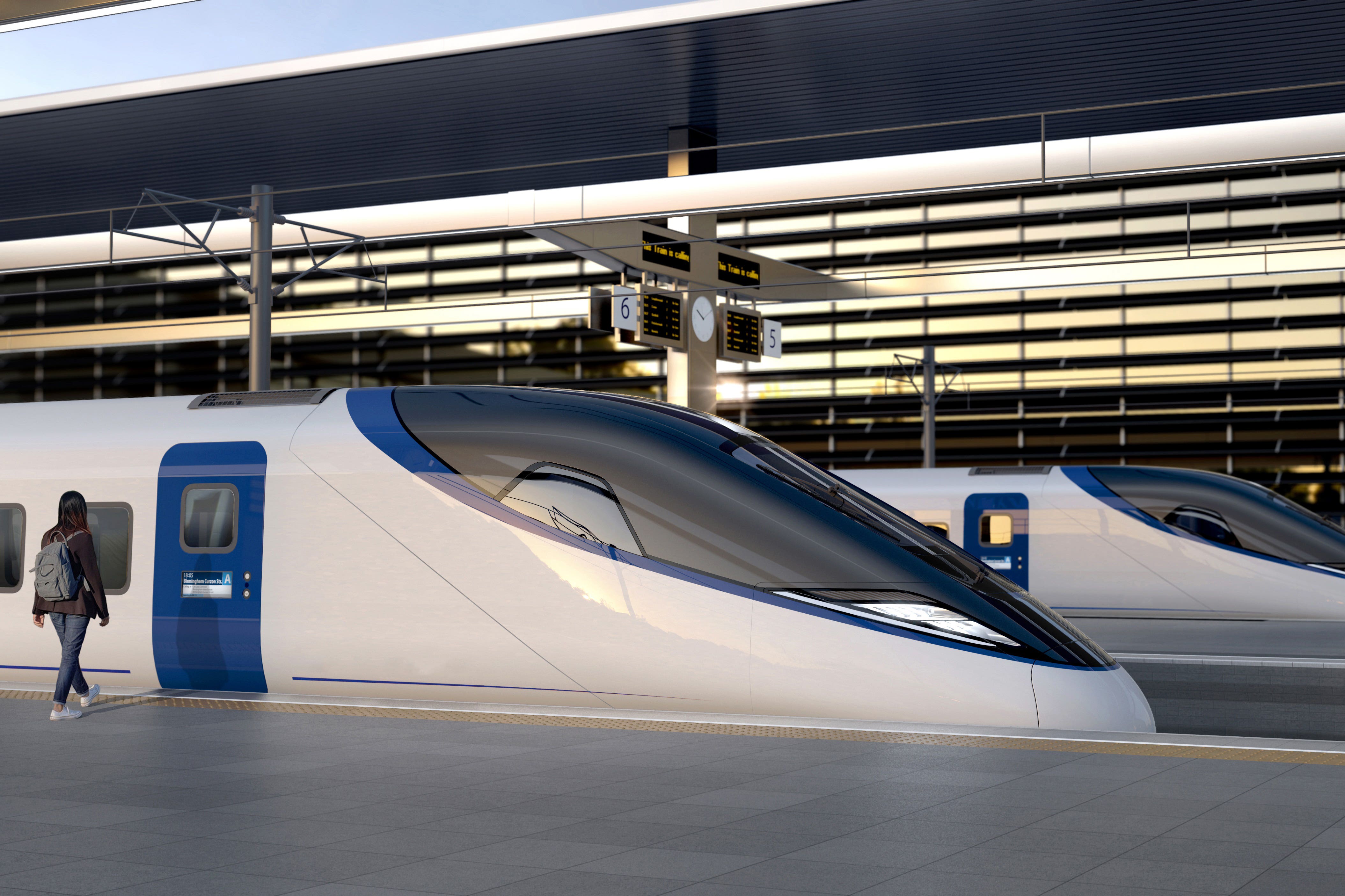The case for going ahead with high-speed rail to Manchester is strong
Editorial: A prime minister who boasts about making ‘long-term decisions for a brighter future’ should make the right one on HS2

Ten days after The Independent brought HS2 firmly back onto the political agenda by revealing that Rishi Sunak and Jeremy Hunt were locked in talks about scrapping the second stage of the high-speed railway, the prime minister and his chancellor are still undecided.
We do not criticise them for taking so long: this is an important decision and it is worth getting it right. But the length of time they are taking suggests that the decision remains in the balance, and that it is, therefore, worth rehearsing the argument for HS2.
Indeed, that is what Boris Johnson, David Cameron, George Osborne and Sadiq Khan – an otherwise unlikely coalition – have done from outside government. And it is what Michael Gove, the levelling-up secretary, is said to be doing from inside government.
Naturally, there are selfish interests involved for all. Mr Cameron and Mr Osborne see the scheme, which they inherited at an early planning stage from Andrew Adonis, the Labour transport secretary who originally launched it, as part of the legacy of their six-year partnership in government. Mr Johnson, who overruled the doubters during his time as prime minister, sees it as part of his legacy, too: he made extravagant promises about “levelling-up” the country, of which HS2 was a central component.
Mr Gove, who incorporated Mr Johnson’s slogan in the title of his department, has a similar personal commitment. And Mr Khan sees the rail line as the key to presenting the interests of London as aligned with those of the rest of the country.
So we should discount some of the rhetoric coming from the pro-HS2 corner. Mr Johnson’s claim, for example, that “it makes no sense at all to deliver a mutilated HS2”, is colourful, but not in itself an argument. In fact, many of the arguments made for pushing ahead with the next stages of HS2 are weak.
Some of them are variants of the sunk cost fallacy: the idea that just because a lot of money has been spent on a project already, a lot more money should be spent to complete it. That seems to be the gist of Mr Johnson’s case.
It is a familiar refrain that the construction of a high-speed line that runs from six miles outside the London Euston terminus to Birmingham would deliver the “worst of both worlds”. Lord Adonis argues that to cancel the next section, from Birmingham to Manchester, would be to waste much of the money spent on the London-to-Birmingham stretch, because the benefits of HS2 were estimated for the whole of the line, from London to destinations north of Birmingham.
However, if the overall project is unlikely to provide value for money, then it makes sense not to throw good money after bad. And, given that the main case for HS2 is that it will add to the capacity of the whole rail network – rather than simply offering faster journey times – then another line from London to the Midlands should in itself make a significant difference. Just because that benefit might be tilted in favour of the South is no reason to go ahead with the second stage to Manchester if it is uneconomical to do so.
Supporters of the project ought to accept, too, that cost overruns are a problem. So-called Treasury orthodoxy has come in for some criticism recently, but a lot of that is unjustified, and Mr Hunt is quite right to question the escalating budget estimates on behalf of the taxpayer.
In the end, though, The Independent believes that it must be possible to get a grip on costs. If so, we believe that the original plan for the lines to Manchester and to East Midlands Parkway will prove to be good value over time. Every other country that has built high-speed rail lines has reaped large benefits of better connectivity. None of them has looked back and said, “We spent too much building that.”
Expanding the capacity of a rail network powered by clean electricity, with high-speed connections between our biggest cities, will unlock the country’s economic potential, so much of which is suppressed outside the crowded South East. All politicians pay lip service to levelling up; here is a chance to turn words into infrastructure.
We should not press ahead with HS2 because of abstract appeals to patriotism and “What does it say about us that we give up halfway?”: we should do it because it is in our long-term interest as a country. A prime minister who boasts about making “long-term decisions for a brighter future” should make the right decision on HS2.
Join our commenting forum
Join thought-provoking conversations, follow other Independent readers and see their replies
Comments


Bookmark popover
Removed from bookmarks